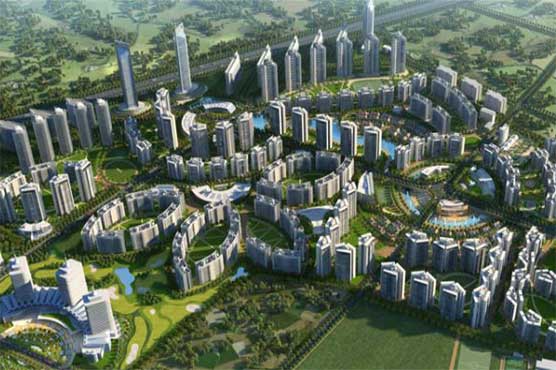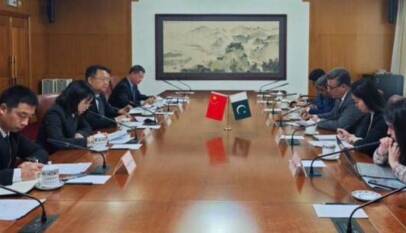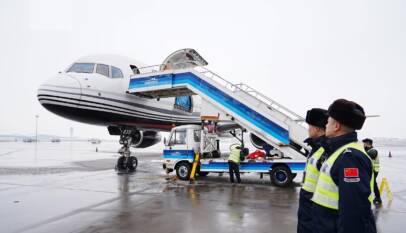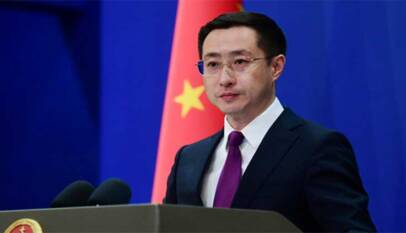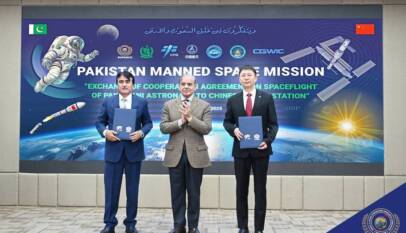Chinese automobile manufacturer to develop production plant in Raiwind SEZ
Chinese automobile manufacturer, SAIC Motor Corporation Limited has announced willingness to enter SEZ in Raiwind, Punjab, with an estimated FDI of PKR 663 million, and local investment of PKR 637 million. SAIC is the seventh-largest auto developer in the world and the largest in China, and will employ 500 Pakistanis in first phase of production.
SAIC Motor Corporation Limited, China’s largest automobile manufacturer, is to enter Pakistan’s first-ever private sector Special Economic Zone (SEZ) in Raiwind, Punjab, JW SEZ China-Pakistan SEZ, with an estimated FDI of Rs. 663 million and local investment of Rs. 637 million.
The company plans to start manufacturing Electric Vehicles currently (EVs) in Pakistan with its local partner, JW-SEZ. It is not currently clear whether the private SEZ will manufacture vehicles only for the domestic market or also for exports.
Companies are usually set up in SEZs (with special tax and other benefits) to export goods. MG Pakistan is a joint venture between JW-SEZ and SMIL — a subsidiary of SAIC Motor Corporation Limited.
SAIC is a Chinese state-owned multinational automotive design and manufacturing company based in Shanghai. It is also the seventh-largest auto developer in the world and the largest in China.
SAIC bought Morris Garages (MG), a prestigious British brand, in 2006, a name it now uses to market its automobiles globally. Earlier, JW-SEZ signed up with Changsha Foton Motors to form EVsJW Forland to manufacture trucks; with an initial investment of about $150 million, the company built the manufacturing plant.
Vehicles manufactured include trucks, minivans, and cargo vehicles, and so far, about 500 people have been employed for phase one production, expected to be around 30,000 vehicles.
During phases 2-3, a further investment of approximately $300m is expected, and over 100,000 units of electric vehicles are to be manufactured per year. The production plant currently around 50 acres will expand to an additional 100 acres and the company will employ over 3500 new workers to carry on the production.
The new Chinese brands that have entered the country have received an overwhelming response, primarily since the three other major car companies, Honda, Suzuki, and Toyota, have held a large share of domestic auto market sales for decades, and lacked competition which kept prices higher than equivalent international rates and discouraged diversity of products.
Chinese SUVs have already become the cheapest in the market while simultaneously offering better quality features. Presently, there are ten cars for every 1,000 people in Pakistan.
This is one of the lowest ratios in the world, which speaks of the high potential of growth. Rising per capita income of changing demographic distribution and an anticipated influx of 30-40 million young people in the economically active workforce in the next decade will provide a stimulus to the automotive industry to expand and grow.
With electric vehicles already gaining popularity in the country, the market seems like an ideal place for further investment.
Establishing EV infrastructure: Impending challenges
While the incumbent government has said it wants to see the manufacture of 100,000 cars and more than half a million two and three-wheeler Electric Vehicles (EVs) in the country in the next few years, the path is laden with huge challenges and obstacles.
Even if the government succeeds in manufacturing the vehicles by inviting foreign investors, establishing EV charging stations all over the country will prove to be a daunting task. An EV charging station for cars/ four wheelers requires three fast chargers with the capacities of 50kW/ 200-1000V, 50kW/ 200-1000V and 22kW/ 380-480V.
For smaller vehicles, the charging station should be around 15 kW/ 72-200V and 10 kW/ 230V. Establishing countrywide EV charging stations across the Business country will require massive investment and land availability in different cities and towns.
While the former challenge may be easier to overcome, separate land availability in the already congested cities will be difficult to ensure. An electric vehicle charging station, on average, requires an investment of Rs. 3.2 million In Pakistan.
BMW EV ChargeNow stations have started operating in Islamabad, Lahore, and Karachi. The same company launched the country’s first-ever public EV charging station at Emporium mall, Lahore, and Dolmen Mall, Karachi.
Ever since, various petroleum companies, including state-owned PSO, and Shell have joined hands with automakers, converting their petrol stations into electric vehicle charging stations.
Pakistan is an energy deficient country; the net daily deficit of oil consumption in the country is around 470,000 barrels, forcing it to rely heavily on imports. Spending hard-earned foreign exchange on imports is a significant drain on the economy.
The financial impact is not the only deterrent, however. Utilizing oil as a fuel also has severe environmental impacts contributing to the country’s rising bulge of carbon footprint. On the long-term Climate Risk Index (CRI), Pakistan ranks at number eight as one of the countries most affected by climate change.
These two issues are critical in understanding Pakistan’s urgent need to look towards alternative and fuel-efficient resources. The government has also recently implemented “The Electric Vehicles Policy,” which offers incentives to assemblers and manufacturers of EVs and further encourages investment in the sector.
Earlier, the Automotive Development Policy (2016-2021) had promoted foreign investment into the country, attracting international automobile companies into the market. Many leading members of the global automobile industry like Japan and South Korea have expressed their intent on investing in Pakistan, foreseeing the high potential for the emerging EV market.
It’s noteworthy that while Chinese companies have shifted towards EVs directly, Japanese automobile manufacturers want Pakistan to consider a different route where both hybrid EVs and EVs are allowed to compete, which has been the case in countries such as Malaysia, Thailand, and India.
However, EVs help reduces our oil imports’ burden, saving some much-needed foreign exchange for the economy. Moreover, EVs are far better for the environment as they have a much smaller carbon footprint than automobiles that rely on oil or gas.
They are cost-wise more affordable for the people as Chinese companies are bringing in cheaper models and run on cheaper fuel. EVs are not just a luxury this country can relish but can become a critical component in ensuring Pakistan’s future economic wellbeing.
Pakistan, China review CPEC progress in high-level meeting
Pakistan’s Ambassador to China, Khalil Hashmi, met with Pan Jiang, Director General of the…



